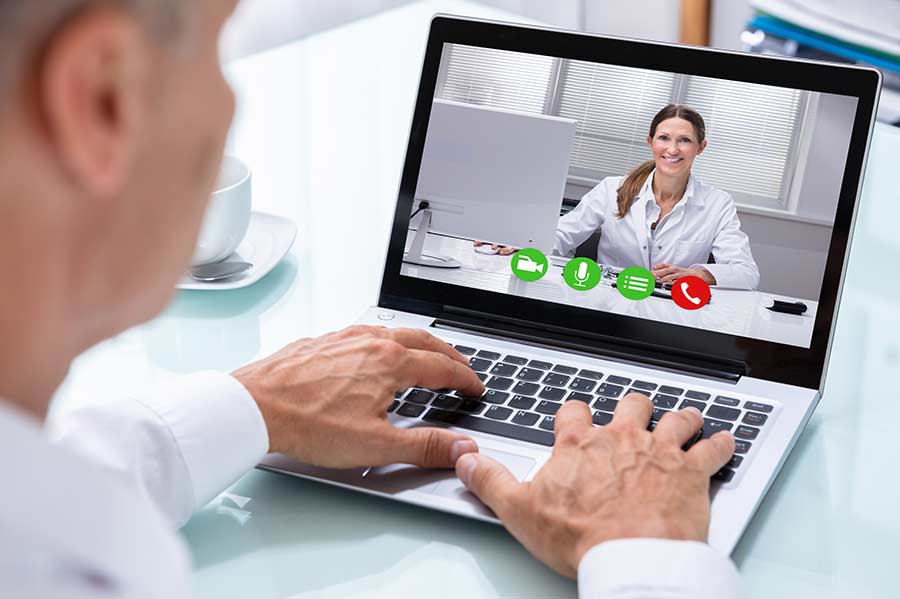For anyone in the medical device industry, ISO Audits are stressful enough and there is a lot riding on them. However, in the current situation, now you add the challenges of a pandemic and remote communication on top of it.
As part of a recent renewal audit for our ISO 13485 certification, PRO-TECH Design recently had to navigate this exact scenario. We had to conduct a remote, safely-distanced audit to ensure the 3-year renewal of our ISO certification. It was a unique and sometimes exhausting experience and we thought it would be helpful to share some of the insights we learned.

First, we would like to thank the auditors for being very accommodating and understanding of the unique circumstances we are all dealing with. Due to COVID-19, they were restricted from traveling to the audit site as they normally would and all the discussions had to be completed via phone, video conference or email. Luckily, we were pleasantly surprised by how much can be accomplished remotely when everyone pulls together. Here are a few insights that made the entire process easier:
1. Organized Quality Management System – to successfully conduct a remote ISO audit, right at the top of the list is an organized, electronic Quality Management System (QMS). To keep the discussion moving, you need to quickly supply the auditor team with the right records and documents. If you know how your system is organized, it is much easier to identify the right documents in real-time and email or share them with the auditor at the proper time to keep the conversation focused and relevant. Luckily, my company had invested in a high quality, electronic QMS system several years ago and the entire QA team was adept at navigating it easily and knew where to find the relevant documents. If you can take steps to invest in an electronic QMS system if you do not already have one, and to organize and become familiar with it in preparation for an audit, we found it well worth the effort.
2. Broad Knowledge of QA – another element that helped was having a point person who has a broad knowledge of the various QA areas. Because I have experience in both QA and validation, I was able to easily call up the right information and bring the right context to the discussion. The more your systems and personnel are siloed, the harder it is to have a cohesive conversation and to link all the right pieces. This can be difficult in larger companies with more rigidly defined areas. Having this “connectedness” and hands on context was a definite benefit for us.
3. Anticipate Questions – it was also hugely helpful for my team to meet before the audit and anticipate what information the auditors would want to review. Our team mapped out a game plan before the audit and identified the information and context that would be most helpful to aid the auditors’ review. We tried to put ourselves in the auditor’s shoes and look at it from their lens. As a result, when the actual audit began, the team had a good feel for what was needed and in what order.
4. Strong QA Team – as you might expect, another critical element to a successful audit is having a strong QA team in place who takes pride in their role in the company. I was very proud of how my team handled audit requests and they always completed the tasks with a high level of professionalism. This pride and commitment are tangible to outside auditors and it reflects how they perceive the company as a whole. Now, you obviously can’t go out and hire talented people with this capability overnight, but for us, it has been a commitment from our leadership and a point of emphasis that we regularly highlight during conversations with customers. Because of this, my team and I feel valued and challenged and we want to bring our best to the company every day.
5. Agility – one of the areas we pride ourselves on as a company is our ability to adjust and predict potential challenges. As a contract packaging vendor, we work with a broad range of customers who each have unique situations. The playing field for a project is constantly evolving, and we need to adjust quickly and approach each challenge with flexibility in mind. This is truly a cultural muscle that needs to be encouraged and trained. As a result, when we had to adapt to an uncharted situation like a remote audit in the middle of a pandemic, my team and I were ready to respond.
We hope these tips are helpful to those who are having to navigate new, unexpected challenges. Please contact us if we can be of help. You can reach us at: info@protechdesign.com or 562-270-1680.

Clarissa Muraoka
Quality Assurance Manager
